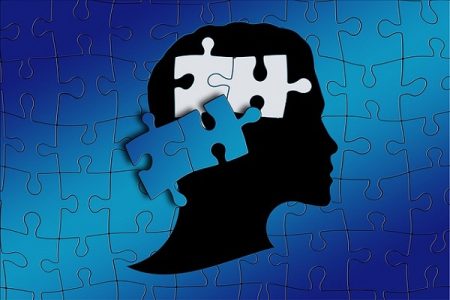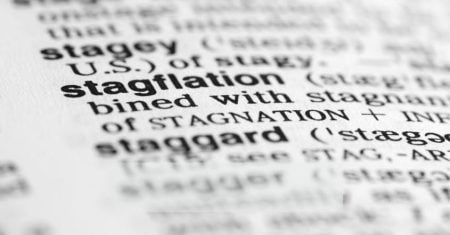Dyslexia in Adults
- Updated on: Jun 10, 2024
- 5 min Read
- Published on Mar 12, 2019

What is dyslexia?
Dyslexia is a learning disorder characterized by several difficulties like problems with reading and writing. People with dyslexia have difficulty in matching the letters they read to the sounds those letters make. Dyslexia is typically diagnosed in childhood however it often continues into adulthood. Most of the children with dyslexia are not diagnosed till they reach adulthood, however some adults diagnosed with dyslexia have found a change in symptoms as they grow older.
Characteristics of Adult Dyslexia
Most adults with dyslexia usually exhibit several of the following characteristics; however these characteristics are not consistent, and may differ depending upon the day or situation.
Career
- Hide difficulties in reading, writing or spelling from co-workers, friends and sometimes even from family.
- Becomes frustrated at planning meetings as well as sequential tasks.
- Become overwhelmed or frustrated with long or sequential processes.
- Thrive in careers especially where hands-on talents or visual-spatial can be realized, for example they can perform better as engineers, business owners, interior decorators etc (usually with an assistant or staff).
- Usually give up promotions or advancement opportunities which require more administrative work.
General
- Highly intuitive and often quick and accurate in judging personalities of others.
- May be able to sense emotions of others.
- Poor balance.
- Remember faces but not names without tricks.
- Usually mis-use, mis-speak and mis-pronounce words without realizing.
- Difficulty in remembering verbal instructions and directions, instead like to see them visually.
- Poor recalling.
Maths, Time Management and Directions
- Can perform high level maths, but not able to show it on paper.
- May sometimes excel at maths, or may use tricks for remembering facts related to maths.
- Usually rely on calculators or finger counting.
- Difficulty in directions like east, west, north and south and also left/right.
- Anxiety or stress while driving to unfamiliar places, so rely on others driving whenever possible.
- May lack track of time and are often late or compulsively early.
Reading, Writing and Spelling
- Avoid reading out loudly.
- Like larger and clearer fonts instead of small and unusual fonts.
- Dislike public speaking.
- Have adopted tricks to remember spellings of words having same sounds like their, there ,they’re etc and have usually poor and inconsistent spelling.
- Become easily bored and tired while reading.
- Rely on others for written correspondence.
- Have uncertainty in words, punctuation, and spelling while writing and also rely on spell-check and grammar-check.
- Poor hand writing as well as spelling.
- Use capital letters for writing and also mix capital letters within words.
Behavior, Health and Personality
- Easily frustrated, angered, or annoyed.
- Easily stressed and overwhelmed in some situations.
- Have low self-esteem.
- Are self-conscious when speaking in a group and therefore have difficulty getting thoughts out, speak in uncertain phrases, pause frequently and also leave sentences incomplete and this may worsen in stressful situations.
- Usually stick to what they know.
- Have fear of new tasks or any situation which is out of their comfort zone.
Types of Dyslexia in Adults
There is no official list of dyslexia types because they can be classified in different ways, however the following categories can be used:
Phonological dyslexia or dysphonetic dyslexia or auditory dyslexia
The person has difficulty in breaking down words into smaller units, making it tough for him to match the sounds with their written form.
Surface dyslexia or dyseidectic dyslexia or visual dyslexia
The person is unable to recognize words by sight and therefore it is difficult for him to remember and learn the words.
Rapid naming deficit
The person cannot rapidly name a letter or number on seeing it.
Double deficit dyslexia
The person has difficulty in isolating sounds finds, letters and numbers.
Visual dyslexia:
The person has a different visual experience when looking at words. This can sometimes overlap with surface dyslexia.
Signs and symptoms of Adult dyslexia
Some Signs and symptoms of dyslexia in older children and adults include issues with:
- Solving math problems
- Reading
- Managing time
- Memorizing things
- Difficulty in summarizing a story which they have read or heard
- Difficulty in understanding idioms and jokes
Besides these symptoms, some other issues which may interfere in their daily functioning are:
- Difficulty in focusing on one task.
- Avoiding meetings especially those which are related to planning.
- Becoming overwhelmed about lengthy tasks, like filling a lengthy form.
- Over-reacting to mistakes.
- Applying strict rules on themselves.
- Better learning through vision and through hands-on experience.
- Get easily affected by stress.
- Low self-esteem.
- Messy and poor handwriting.
- Struggle with foreign language.
- Disparity between ability and confidence.
Dyslexia assessment for adults
There are many indications of Dyslexia in adults and some of them are discussed below:
Reading
- Difficulty in reading loudly and therefore read slowly.
- Re-reading of texts in order to make it meaningful.
- Loses his or her place in a line of words.
- Misreads words like “computers” as “commuters”.
- Skips small words.
Difficulty in remembering content and following instruction manuals
- Problem in spelling of words.
- Problem in spelling familiar words.
- Misusing phonetic spellings, like breef for brief.
- Problem in filling forms.
- Problems in using homophones like their, there, they’re.
- Getting letters in the wrong order, e.g decision for decision.
- Difficulties in Punctuation.
Mathematics
- Problems in learning tables.
- Problems in filling out cheques.
- Not able to remember phone numbers, registration numbers, dates etc.
- Difficulties in sequencing.
- Problems in using dictionary and telephone directory etc.
- Difficulty in finding the car in parking.
- Difficulty in map reading.
- Confusion in directions like left/right.
- Problems in language/Speech.
- Problems in remembering the names of familiar people, places etc.
- Mispronouncing of words like pacific for specific.
- Difficulty in remembering song lyrics.
- Difficulty when speaking in community.
Dyslexia treatment for adults
There is no actual known way to treat the underlying brain abnormality that results in dyslexia and therefore dyslexia is a lifelong problem. However an early detection and evaluation can be used to determine specific needs and appropriate treatment.
As a person grows older, it becomes very difficult to diagnose and treat dyslexia. To overcome this problem, many new tools and programmes are being developed. For example, CogniFit’s neuroscientists have designed and developed a specific program for adults with dyslexia:
It is a scientific tool which uses simple interactive exercises to track the performance of users, and to detect the impaired cognitive skills and also stimulate the basic neural network mechanically. The benefits of the CogniFit brain training programs in adults with dyslexia have shown significant results in a short period.
Assessment of in adults: Dyslexia tests
Assessment and testing of Dyslexia is done through methods and tools which generate profiles of learning related strengths and weaknesses and also help to measure severity of the symptoms in an individual/adult. Questions are asked to patients in the form of a questionnaire and answers are given by the suspected individuals, which are kept confidential. Individuals are not asked to give any personal information. This assessment test can be used by the suspected individuals for themselves by answering the questions, or one can use this evaluation as a method of learning more about the learning profile of a family member or a student with whom he/she is working.
Different variants are available for the questionnaire or other tools for assessment of dyslexia. This assessment test may consist of a questionnaire having several questions and for the best results, the individual should try to answer as many questions as possible, but he/she can skip or omit any irrelevant question. The results are then printed on a screen as soon as the individual answers all the questions.












